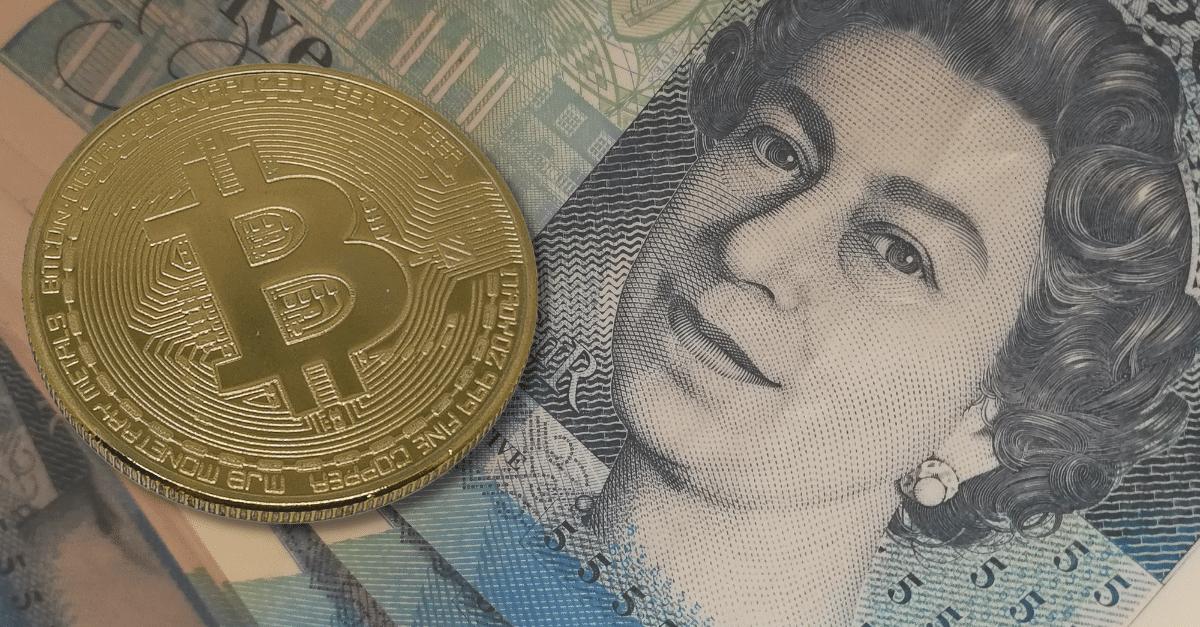Turmoil With The British Pound Only Strengthens Bitcoin’s Hedge Appeal

Crypto’s biggest critics often argue that fiat currencies offer much more stability, security, and reliability than purported ‘digital assets.’
However, evidence shows that as traditional financial markets continue to suffer, crypto-assets like Bitcoin quickly become the preferred hedge of choice for investors and citizens alike.
Over the fall, global news outlets continue to focus financial-based reporting on the shaky British economy and the economic fallout based on the death of Queen Elizabeth II, the swift departure of Prime Minister Liz Truss, and the appointment of Rishi Sunak as PM in a matter of several weeks.
A Falling British Pound Has Sent BTC Trading On The Rise
In late September 2022, the value of the British Pound fell to a near 1:1 parity with the US Dollar – the biggest downward slide for the iconic fiat currency in recorded history. The Pound slid more than 20% from January to early October 2022.
Around the same time, a range of sweeping tax cuts unveiled by then-Prime Minister Liz Truss sent bond yields soaring and investors toward Bitcoin.
The following Monday after her September 23rd tax announcement, crypto exchanges reported a record $955 million amount of Sterling-to-Bitcoin transactions, a then record.
Reporting also revealed that trade volume between the Pound and Bitcoin jumped 233% in September compared to August. Interestingly, data from late October 2022 found that the Pound’s 30-day volatility was nearly as high as Bitcoin’s.
The British Pound did rally in October as investors welcomed the appointment of Sunak as Prime Minister.
Many speculated Sunak’s comments to fix “mistakes” made by Truss’s cabinet and the announcement by the UK’s Chancellor to delay the nation’s economic plan until November 17th to ensure data accuracy meant investors felt the UK was in safer hands for the short term.
However, the UK’s financial woes are far from over. Data shows that the nation’s economic activity has been unstable in many areas over the past few months. For example, increased borrowing costs have slowed growth in real estate. In addition, questions remain about how natural gas price surges and labor shortages will impact future financial outlooks.
All these factors, especially the Pound-Bitcoin trade activity, have renewed the cries that virtual currency remains a viable hedge against inflation and a store of value.

Bitcoin Remains A Viable Inflation Hedge, No Matter How You Define It
Some of the coin’s strongest advocates point towards its fixed 21-million supply and independence from traditional financial authorities like central banks to assert that Bitcoin is a safe-haven asset.
Indeed, data from early October showed a growing relationship between the Bitcoin-gold trading price, notable for those who believe the crypto is ‘digital gold.’
While the coin’s price has dropped more dramatically than gold’s across 2022, Bitcoin has branched away from moving in tandem with the stock market (which has also sunk massively this year).
Writing for the Motley Fool, Neil Patel argues that reexamining the traditional definition of ‘inflation hedge’ proves that Bitcoin has viability as a safe-haven asset. In his eyes, the market would arbitrage an opportunity where an asset moves in step with the Consumer Price Index until there is no longer a relationship.
Patel argues that assets must be examined long-term to determine their viability as an inflation hedge.
This is where Bitcoin wins. With a “trailing five-year return of 1,100%” (as of the article’s June 8th publication date), Bitcoin buyers have seen their purchasing power jump by an impressive margin. In contrast, the CPI jumped only 18.5% in this same time frame.
While many might not buy Patel’s argument, crypto is already trusted enough as a safe-haven asset in nations like Venezuela, where citizens transact on peer-to-peer marketplaces amid massive hyperinflation.
The trouble with the British Pound only looks to serve as another case study for Bitcoin’s viability as a safe-haven asset amid fiat inflation and uncertainty.



